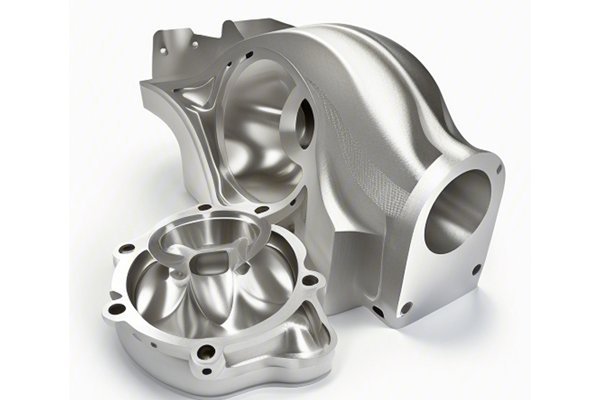*
Did you know that the global CNC machining market is expected to reach over $117 billion by 2025, growing at a CAGR of approximately 6%? This explosive growth is largely due to the rise in demand for precise components across various industries, ranging from aerospace to automotive. In this blog, we will explore the advantages of using a CNC milling company for custom parts production. We’ll dive deep into the world of CNC machining, explaining how these systems work, the benefits they offer, and why they are indispensable in today’s manufacturing landscape.
Understanding CNC Milling
What is CNC Milling?
CNC (Computer Numerical Control) milling is a subtractive manufacturing process that employs computerized controls to cut, shape, and finish materials into precise components. CNC mills can operate on a variety of materials, including metals, plastics, and wood, making them a versatile option for custom parts production.
CNC milling machines utilize a range of tools, allowing them to manufacture parts with varying degrees of complexity. The process begins with a CAD (Computer-Aided Design) model, which is converted into a CNC program that guides the machine through its operations.
The Advantages of Using a CNC Milling Company
One of the most significant advantages of CNC milling is the unparalleled precision it offers. CNC machines can create components with tolerances as tight as ±0.001 inches, which is crucial for industries where accuracy is non-negotiable, such as aerospace and medical device manufacturing. This level of precision ensures that parts fit perfectly, reducing the chances of malfunctions and improving overall product reliability.
Every project is unique, and a CNC milling company can tailor its services to meet specific requirements. Customization can range from altering dimensions to changing materials based on the intended application. CNC milling allows for the production of complex geometries and intricate designs that would be almost impossible to achieve with traditional manufacturing processes.
CNC milling processes can operate continuously, significantly reducing production times. While manual machining might require hours or even days for complex parts, CNC machines can churn out multiple parts in a fraction of that time. Additionally, once a program is established, it can be reused for multiple runs, streamlining the production process.
Although beginning a project with a CNC milling company may require an upfront investment in programming and setup, the long-term savings can be substantial. The reduced labor costs, minimized waste, and efficiency of CNC machining translate to lower overall production expenses. For companies that require large quantities of identical parts, CNC milling can lead to significant economies of scale.
One of the standout features of CNC milling is its ability to work with a wide range of materials. Whether it’s aluminum, brass, plastic, or even exotic materials like titanium, a competent CNC milling company can accommodate various requirements. This versatility allows companies to source everything under one roof, simplifying the supply chain and reducing lead times.
Using a CNC milling company ensures consistency across batches of manufactured parts. The computerized controls of the machine minimize human error, making each part indistinguishable from the last. This consistency is invaluable for industries where uniformity and reliability are essential, such as automotive or electronics.
CNC machines require less manual intervention than traditional machining processes, which significantly enhances workplace safety. Operators can program the machines remotely and monitor their operations without being exposed to hazardous activities. This protective aspect is becoming increasingly important in modern manufacturing settings.

Before moving to mass production, companies often need prototypes to test their designs. CNC milling companies can create these prototypes quickly and accurately, allowing clients to test and refine their ideas before committing to larger quantities. This rapid prototyping capability can save considerable time and resources during the development phase.
Many projects require complex geometries and intricate designs that traditional machining processes struggle to achieve. CNC milling’s advanced capabilities allow for the production of intricate parts with multiple curves, holes, and features. CNC milling companies employ skilled technicians who can tackle these challenges effectively.
Effective Solutions through CNC Milling
Given the myriad advantages CNC milling offers, let’s delve into how businesses can effectively use CNC milling companies to solve specific production challenges.
The first step in the CNC machining process is defining the project requirements clearly. Businesses should outline dimensions, tolerances, and desired materials to minimize confusion and errors further down the line. Engaging with engineers during this phase can provide insights into feasible designs and material selections.
CNC milling is not a ‘one-size-fits-all’ technology. Consulting with experts helps businesses understand the available options that meet their needs. Professionals can offer recommendations on tool choices, materials, and machining methods that suit specific applications.
Companies should invest in high-quality CAD software to create detailed models of their intended components. These models should be shared with the CNC milling company to allow for effective programming and trial runs. Some CNC milling services also offer CAD support, making it even easier for companies with limited engineering resources to engage in custom machining.
To minimize risk, businesses should consider prototyping phases. By creating a prototype using the CNC milling services, companies can test their component’s functionality and fit before mass production. This step can prevent costly errors later in the manufacturing process.
Effective communication is key to a successful partnership with any CNC milling company. Companies should ensure they maintain open lines of communication regarding timelines, design changes, and production issues. Using project management tools can help keep everyone on the same page.
Lastly, companies should keep their CNC machines in top condition for maximum efficiency and precision. Regular maintenance can help identify potential issues before they halt production. Additionally, keeping software up to date ensures the use of the latest technology and can enhance performance.
In a world where precision, customization, and efficiency dictate success, CNC milling emerges as a powerful ally for custom parts production. The advantages of using a CNC milling company—from unparalleled accuracy to versatility of materials—underscore its importance in today’s manufacturing landscape. As industries continue to evolve, so too will the capabilities of CNC technology.
By defining clear requirements, collaborating with experts, utilizing advanced software, implementing prototyping phases, streamlining communication, and maintaining equipment, businesses can unlock the full potential of CNC milling services.
As you consider your production needs, remember that choosing to partner with a CNC milling company could be the strategic move that positions your business for success in an increasingly competitive marketplace. The future of manufacturing is not just about machines—it’s about innovation, quality, and collaboration. Invest in smarter solutions today, and you’ll reap the benefits tomorrow.






